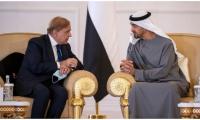KARACHI: Analysts have underlined certain negative implications on Pakistan’s fragile economy ranging from higher import bill and higher electricity tariff to further monetary tightening as global oil prices surged around 10 percent following drone attacks on Saudi Aramco’s two oil processing facilities.
Tahir Abbas at Arif Habib Limited said higher oil prices were negative for the macro-economy owing to aggravated inflationary pressure, which may require further monetary tightening. “With increasing oil prices, the inflationary reading is also expected to move in tandem, leading towards further monetary tightening.”
Saudi oil production has been reduced by 5.7 million barrels per day, which is around 50 percent of the kingdom’s total output and approximately 5.0 percent of the global oil production.
“Our estimate suggests that, for every $5/bbl increase in oil price, our base case inflation (9.6 percent) will have an impact of 23bps for FY20. Additionally, stronger oil prices internationally may also trigger global monetary tightening, which is also negative as Pakistan is expected to raise Eurobond and Sukuk worth $2.0 billion approximately from the international markets.” Although OPEC and non-OPEC countries have adequate spare capacities, which might pump in additional oil, global oil analysts predict that oil restoration might take some time and thus geo-political tensions could keep oil prices at a higher level.
Analysts suggests that for every $5/bbl upwards movement in oil prices will have an incremental annualised impact of around $1.25 billion on imports of Pakistan, which may again deteriorate current account deficit of the country.
“On the other hand, direct impact of 10 percent hike in oil price has impact of 0.5 percent on CPI inflation while indirect impact is much higher,” Aftab Awan at Sherman Securities noted.
“As far as stock market is concerned, oil price has direct implication on inflation and interest rate outlook. If this oil price shock prolongs, it may affect short-term view of declining interest rates,” Awan said.
It is crucial to mention here that Pakistan has also availed a deferred oil credit facility amounting to $3.0 billion/annum from Saudi Arabia. “We expect this facility to remain undisrupted as Pakistan’s oil imports from KSA constitute a very small proportion ie 1.8 percent of Saudi Arabia’s total oil production as per our estimates,” Tahir Abbas opined.
Analysts believe the upward movement in oil prices is positive for local E&P companies with earnings stimulus ranging between 2.0 percent and 7.0 percent on an annualised basis. “Given that the country has given long-term contracts for import of RLNG, whose price is dependent on 3-month average Brent prices, along with dependency on RLNG-based power plants, we may see an increase in power tariff with a lag which is negative for local manufacturing industries,” a report issued by Arif Habib Limited said.
Analysts believe oil prices in the short-term will now track official announcement from Aramco regarding the damage assessment along with the timeframe for potential oil supply restoration. As per various international media outlets, unofficial sources have very divergent views on production restoration - ranging from a couple of days to months.







